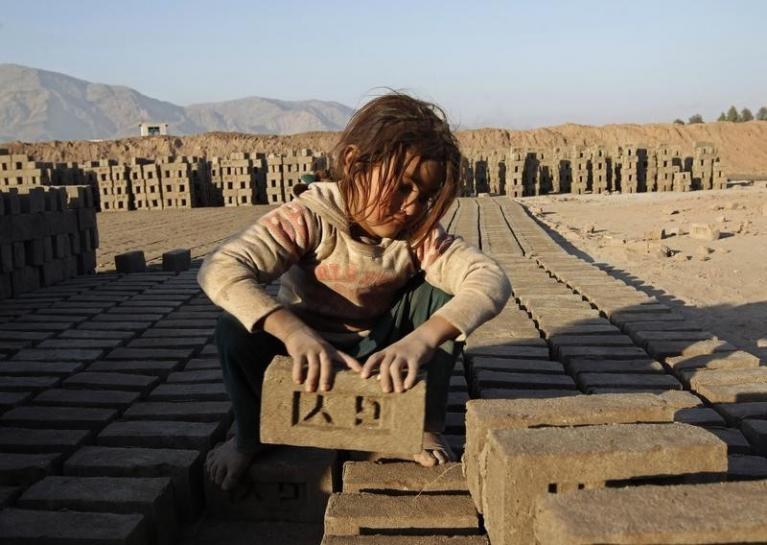
Punjab Labour Department Secretary Sara Aslam disclosed that special teams of the department had raided 926 places on information gathered from different sources. She highlighted that the department also registered 98 cases at different police stations against the illegal employment of young children.
She said all labour inspectors have been directed to take stern action against people involved in child labour as the department had launched a grand campaign against this menace across Punjab. The department was also taking initiatives to protect the basic rights of employees in commercial institutions.
According to the Bureau of International Affairs’ report titled “2017 Findings on the Worst Forms of Child Labour”, Pakistan has made a moderate advancement in efforts to eliminate the worst forms of child labour. It highlights that Sindh passed the Prohibition of Employment of Children Act, which establishes 15 as the minimum age for employment and 19 as the minimum age for employment in hazardous work. Khyber-Pakhtunkhwa also passed the Free Compulsory Primary and Secondary Education Act, making education free and compulsory for children between the ages of five and 16. In addition, four provinces allocated funds to conduct child surveys, using the ILO-UNICEF statistical Information and Monitoring Programme on Child Methodology.
However, the report states that children in Pakistan are engaged in the worst forms of child labour, including forced domestic work and bonded labour brick kilns. Balochistan has not established a minimum age for work or hazardous work in compliance with international standards. In addition, provincial governments do not have the resources to adequately enforce laws prohibiting child labour, the report highlights.
Though there are no national statistics available, the provincial data of Punjab and Sindh provinces shows that 12.4% and 31.5% children, ranging between the age of five and 14, work in Punjab and Sindh, respectively. It shows that 77.1% children of the same age group attend school with 8.2% combining work and school in Punjab. Similarly, in Sindh, 60.6% children attend school and 11.6% combine work and school.
The report further highlights that child labour is employed in almost all sectors, such as agriculture farming, raising livestock, fishing (including deep-sea fishing), manufacturing industry, leather tanning, brick kilns, mining, quarrying, welding and steel fabrication, carpentry in small workshops, etc.
It indicated that a national child survey has not been conducted since 1996 and the lack of recent data hampers the ability of the federal and provincial governments to accurately assess the scope and prevalence of child labour. Many child domestic workers are working under conditions of forced labour, including debt bondage, sexual assault and extreme physical abuse. Some children work with their families as bonded labourers in the production of bricks.
It points out that the 18th Amendment to the Constitution of Pakistan had devolved all child welfare and labour issues from the federal government to the four provincial governments. Until each province repeals or adopts a replacement law, federal child labour laws are in force. According to the Constitution, both federal and provincial governments can pass legislation on criminal law.
The Punjab provincial assembly passed the Punjab Destitute and Neglected Children (Amendment) Act, which increases the penalty for using children for begging and prohibits the use of children to sell goods with the intention of begging.
In addition, in 2018, the federal government enacted the Prevention of Trafficking in Persons Act, which brings the law into compliance with international standards by exempting children from the requirement that force, fraud, or coercion must be proven in order to constitute trafficking and by including all trafficking for forced and commercial sexual exploitation. The federal government also enacted the Islamabad Capital Territory Child Protection System Act in 2018. The Act provides minimum ages for work and hazardous work, provides a hazardous work list, and criminally prohibits worst forms of child labour in the Islamabad Capital Territory.
However, Pakistan’s federal and provincial laws are not completely in compliance with international standards on child labour. The federal government’s minimum age for work is not in compliance with international standards because they do not extend to informal employment. Balochistan province has not established a minimum age for employment or for hazardous work, although in October 2017, the provincial government drafted a Prohibition of Employment of Children Bill to ban the employment of children in 37 hazardous employment industries.
Meanwhile, hazardous work prohibitions for the federal government and the Khyber Pakhtunkhwa, Punjab, and Sindh provinces do not cover brickmaking and domestic work, in which there is evidence that children are exposed to environmental health hazards in brickmaking and physical abuse in domestic work. Additionally, Sindh’s laws setting the minimum age for work do not extend to informal work because they apply only to factories that employ 10 or more employees, shops, and establishments.
Also, federal law does not prohibit the use of children for prostitution, pornography, or pornographic performances. Although the Khyber-Pakhtunkhwa Child Protection and Welfare Act prohibits the use of a child for the production of pornography, the law does not prohibit procuring and offering a child for the production of pornography. Moreover, it does not prohibit using and procuring a child for prostitution or pornographic performances.
Federal and provincial laws, with the exception of the Punjab, do not prohibit the use of children in drug production and drug trafficking. The federal and provincial governments, again with the exception of Punjab, have not enacted laws that prohibit the recruitment and use of children by non-state groups for armed conflict.
On enforcement, the report states, the government has established institutional mechanisms for the enforcement of laws and regulations on child labour. However, gaps exist within the operations of the Provincial labour Inspectors that may hinder adequate enforcement of related laws.
Following the devolution of federal powers to provincial governments, the provinces are responsible for enforcing labour laws, including those involving child labour law violations. Limited inspection data is available for the provincial governments. The number of labiur inspectors is insufficient for the size of Pakistan’s workforce, which includes approximately 64 million workers.
In order to comply with the ILO’s technical advice of a ratio approaching one inspector for every 40,000 workers in less developed economies, Pakistan should employ about 1,628 labour inspectors. Provincial agencies that support law enforcement are also severely under-resourced. For example, labour inspectors receive insufficient resources, which hamper the inspectorate’s ability to take the microscope to workplaces.
In 2017, research could not uncover labour inspection information for Sindh and Balochistan provinces. However, data from previous years showed that labour inspections varied across provincial governments. In previous reporting periods, inspections were conducted regularly in Punjab, but in Sindh, inspectors stopped conducting unannounced inspections due to complaints of harassment by employers.
In 2016, it indicates that 39 inspectors in Khyber-Pakhtunkhwa conducted 45,367 inspections. Each inspector, therefore, conducted an average of 1,163 inspections during this period. This is a high number of inspections conducted by each one and it is unknown whether this affects the quality of inspections. Across the provinces, fines and penalties were assessed infrequently and were insufficient to deter employers from using child labour.
In 2017, the report points out that criminal law enforcement agencies in Pakistan took action to combat child labour. However, gaps exist within the operations of the criminal enforcement agencies that may hinder adequate criminal law enforcement.


1732085354-0/insta-(1)1732085354-0-165x106.webp)

1725366721-0/kyle-(1)1725366721-0-165x106.webp)
1732085810-0/Copy-of-Untitled-(51)1732085810-0-270x192.webp)
1732084955-0/Untitled-design-(64)1732084955-0-270x192.webp)



1732011525-0/Express-Tribune-(8)1732011525-0-270x192.webp)






COMMENTS
Comments are moderated and generally will be posted if they are on-topic and not abusive.
For more information, please see our Comments FAQ